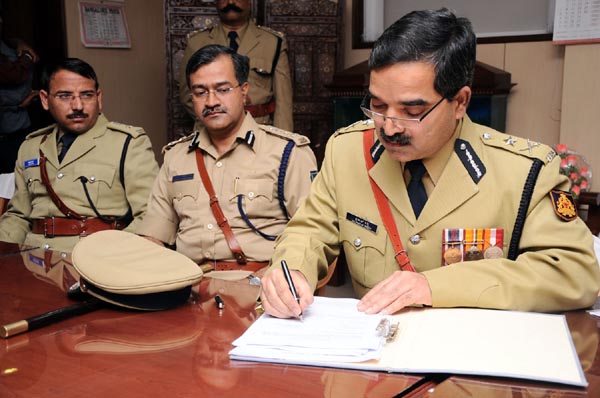Indian Police Service (IPS) Eligibility Criteria, Recruitment, Age Limits, Salary, and Ranks
Indian Police Service (IPS) Officer first and foremost duty is to maintain Law and order in the nation. Until and unless there are internal peace and discipline in the country it’s really difficult to carry out the administrative and other welfare programs. IPS is the prime uniformed civil service. An IPS officer works for the dual government, that means, for both central and state governments. Ranging from Assistant Superintendent of police at the beginning of his career to the Director General of Police at the stage of his retirement, he serves the State Government in various capacities. He is also eligible to serve the Central Government in various sectors like the Central Reserve Police Force, Border Security Force, Central Bureau of Investigation, Intelligence Bureau, Research and Analysis Wing (RAW) etc.
As the work on an IPS officer is very vast and comprises of great remit , therefore to provide some easy in their working,and to fulfill these functions their services is divided into various functional departments including “Crime Branch”, Criminal Investigation Department (CID) “, Home Guards”, Traffic Bureau ” and many more.
 As there is growing crime due to development of science and it’s getting harder to catch- hold on criminals more and more Indian Police Service (IPS) officers are serving in departments. In fact, IPS officers are serving in the areas that used to exclusively be the strength of IAS officers, it’s just as like now IAS officers head the departments like Vigilance which were early given to IPS officers. Due to this widening of opportunities and exposure, the Position of IPS officer had become for fascinating.
As there is growing crime due to development of science and it’s getting harder to catch- hold on criminals more and more Indian Police Service (IPS) officers are serving in departments. In fact, IPS officers are serving in the areas that used to exclusively be the strength of IAS officers, it’s just as like now IAS officers head the departments like Vigilance which were early given to IPS officers. Due to this widening of opportunities and exposure, the Position of IPS officer had become for fascinating.

Being in ‘All India Service’ a strict system is followed called as ‘ cadre system’. As per this system, the officers are distributed to a various cadre of a state and his service is allotted to that state particularly.After the allotment of the service to the officer, for all his activity he belongs to that state service. There are chances that he may be delegated in some other state, but he will always be known by his parent cadre. Like all another system, this system is also very useful but have its own merits and demerits.The allotment of cadre is totally based on luck is it is done on the basis of a lottery. The toppers of each state may get a chance to be in their home state, provided they have selected home state as their preference. The selection of IPS officer is done on the basis of their rank in UPSC exam like the IAS officers are appointed.
ELIGIBILITY CRITERIA FOR IPS:

The eligibility criteria for the Indian Police Service IPS and Indian administrative service IAS officer is the same, but there are some additional requirements. It is the physical requirements. The procedure goes like once the candidate clears the civil service exam and he gets allotted to the service of Indian Police then as per his rank he has to undergo a physical test which is not only mandatory but also necessary for the Police force.
The physical requirements of IPS officers are as below;
1.Height
For men, the minimum height is 165 cm
For women, the minimum height is 150 cm
For the candidates belonging to SC/ST and to the candidates belonging to the races such as Gorkhas, Garhwal is, Assamese, Kumaonis, Nagaland Tribals etc. , there is a relaxation of height up to 160 cum for men and 145cm for women.
2. Chest:
The minimum chest girth when fully expanded should be 84cm for men and for women it should be at least 79cm. Expansion of 5cm for both men and women.
3.Eyesight:
If Myopia-the total amount including the cylinder should be less than (minus)-4.00 D
If Hypermetropia – the total amount including the cylinder should not exceed (plus) +4.00 D
If any candidate is having a squint, he is directly disqualified.

4.The remote vision for a better eye should be 6/6 or 6/9 and for the worse eye it should be 6/12 or 6/9 and near vision should be JI and J2 respectively.
5. Spectacles are allowed
6. High-grade color vision is important and Binocular vision is needed.
Recruitment and Traning for IPS:
Among all the services, the longest training period is for Indian Police Service (IPS) officer. sometimes it may even extend to almost 2 years of training. Generally, the 1st half of the training is done with the other services candidates at Mussoorie and then from there, they are sent to Bharat Darshan in groups.
The second part of the training is done in two phases. It is done in the National Police Academy in Hyderabad. The IPS officers also have to do a certain amount of training in a district of their cadre in between the 2 phases of training at the IPS academy.
Learning the local language of the allotted cadre is an important part of this training. In the academy itself, the basic words of the language are taught to them. Lastly, they are expected to pass 2 levels of the exam and according to their performance, their promotions to the next level is dependent.
Age Limit for IPS:
General-The maximum age for a candidate is 32 years.
OBC- The maximum age for a candidate is 35 years.
SC/ST- The maximum age for a candidate is 37 years.
Physically handicapped- The maximum age for a candidate is 42,45 and =]88 for general, OBC, SC/ST respectively.
IPS Salary and Ranks of IPS
The remuneration of Indian Police Service (IPS) officer is based on the designation which they hold.

1.For the Director General of Police or say Commissioner of Police (name of the state) his salary is 80,000 INR (consolidated) and there is no grade payment.
2.Additional Director General of Police or Special Commissioner of Police enjoys the salary of 37,400-67,000 INR along with grade pay of 12,000 INR
3.Inspector General of Police/Joint Commissioner of Police has the salary of 37,400-67,000 INR along with grade pay of 10,000 INR.
4.Deputy Inspector General of Police also designated under the state government as Additional Commissioner of Police, his salary is 37,400-67,000 INR along with grade pay of 8,900 INR.

5.Senior Superintendent of Police who is also designated as Deputy Commissioner of Police, his salary is 15,600-39,100 INR along with grade pay of 8,700 INR
6.Superintendent of Police or say Deputy Commissioner of Police enjoys the salary of 15,600-39,000 INR along with grade pay of 7,600 INR.
7.Additional Superintendent of Police also can be called as Additional Deputy Commissioner of Police under the state government, his salary is 15,600-39,000 INR along with grade pay of 6,600 INR.
8.Deputy Superintendent of Police also designated as Assistant Commissioner of Police his salary is 15,600-39,100 INR along with grade pay of 5,400 INR.
Other than monthly salary an IPS officer also relish special privileges depending on his post. This salary grade of the IPS officers has been fixed by the Indian Government. This is not a rigid salary scale it keeps on upgrading time to time.


















